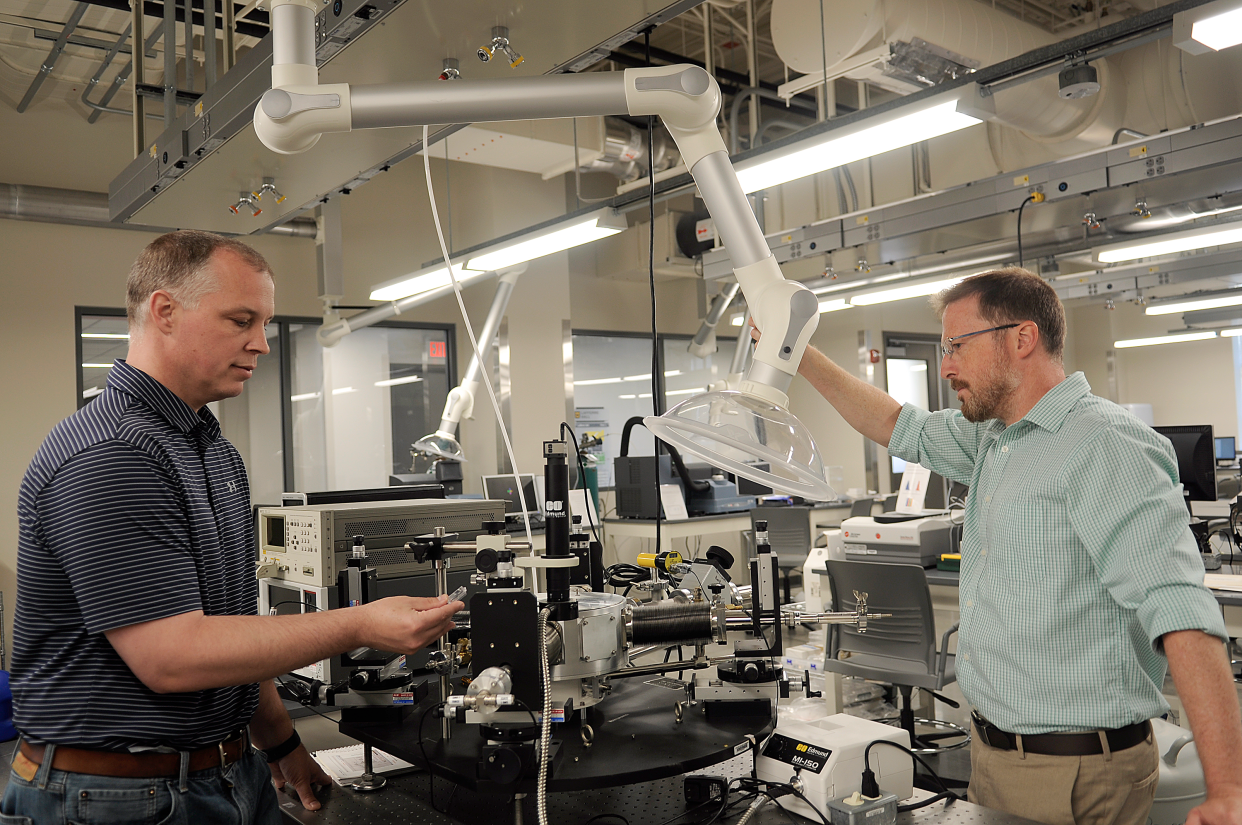Mizzou researchers look at using artificial intelligence to develop new materials faster

Reducing the time it takes to develop new materials using artificial intelligence is an over-arching goal of a new $5 million grant project approved for University of Missouri researchers.
The idea is to teach high-powered computers how to develop materials.
What material? Any material, the researchers said. Be it metal, concrete, biological material or any other type of material one can think of — or even those that haven't been considered — AI can be assigned to the task.
"That's what's interesting," said Matt Maschmann, MU associate professor of mechanical and aerospace engineering. "It's not geared at one specific material."
Artificial intelligence is hard to define, but it has been around a long time, said Derek Anderson, MU associate professor of electrical engineering and computer science.
Smart washing machines and self-driving cars are some examples, he said.
The researchers are developing a "theoretical AI framework" for the grant project.
"This framework can bring materials to market shorter than the 20 years it usually takes to come up with new materials," Anderson said.
The framework will make smarter artificial intelligence, he said.
The two-year, nearly $5 million grant is from the U.S. Army Engineer Research and Development Center.
No, the researchers are not designing Terminators, they said. In the Arnold Schwarzenegger films, humanoid robots try to destroy the planet.
"I think the U.S. Army is as curious as we are about developing materials that change the world," Anderson said.
Anderson and Maschmann lead a team in the MU College of Engineering working on the project.
"Methods that have been used to develop materials haven't really changed in 100 years," Maschmann said. "You try one thing, get one result and keep doing it. It's slow and expensive. It doesn't translate from one material to the next."
Powerful computers have been developed to solve one problem, like playing chess, Anderson said. This will use them to tackle a multitude of things.
Maschmann compared it to recipes using artificial intelligence trying limitless combinations of ingredients in a short period before arriving on a good dish.
It's meant to speed up the process of experimentation — trial and error, they said.
"It's a beautiful space for professors to work in," Anderson said.
The short-term goal is to share their research with other scientists at the conclusion of the project, Anderson said.
They said it could one day lead to exponential advancement in the development of materials.
"It's exciting for both of us," Maschmann said. "It's fun."
Roger McKinney is the education reporter for the Tribune. You can reach him at rmckinney@columbiatribune.com or 573-815-1719. He's on Twitter at @rmckinney9.
This article originally appeared on Columbia Daily Tribune: $5 million grant project looks at applying AI to develop materials

